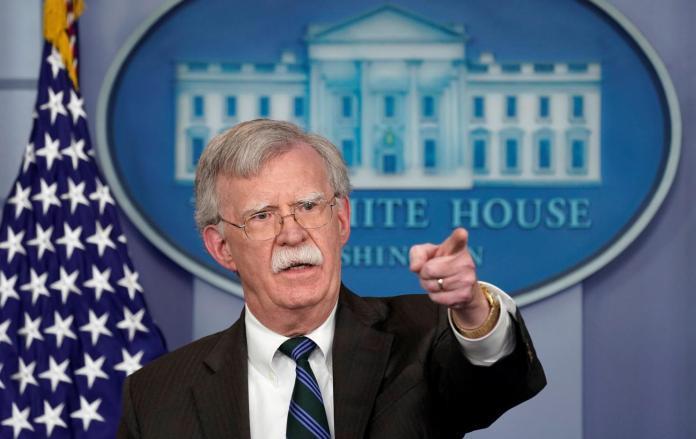
Monroe Doctrine resurfaces in Venezuela crisis
Caribbean News Now Associate Managing Editor
WASHINGTON, USA — The administration of President Donald Trump has brought the Munroe Doctrine back to the forefront of American politics. Trump rejected the leadership of the incumbent president, Nicolás Maduro, whose second term started in early January after a fraudulent election last year. Venezuela is now embroiled in protests and Maduro has described the turmoil as a US-backed coup.
America's history of regional intervention in Latin America is nothing new. Such interventions were often justified with reference to the Monroe Doctrine which appears to have resurfaced.
Last weekend, US national security adviser, John Bolton, said that the US plans to form a coalition to change the Venezuelan government using the Monroe Doctrine as the basis for intervention.
"I'd like to see as broad a coalition as we can put together to replace Maduro. That's what we are trying to do.
"In this administration, we're not afraid to use the word Monroe doctrine. This is a country in our hemisphere. Part of the problem in Venezuela is the heavy Cuban presence. 20,000 to 25,000 Cuban security officials by reports that have been in the public. But this is the sort of thing that we find unacceptable and that's why we're pursuing these policies, " Bolton said.
On December 2, 1823, the Monroe Doctrine as expressed during President Monroe's seventh annual message to Congress, stated that 'Further efforts by European nations to colonize land or interfere with states in North or South America would be viewed as acts of aggression, requiring US intervention.
'The United States, Monroe asserted, would neither interfere with existing European colonies nor pry in the internal concerns of European countries. At the time when the doctrine was issued only Cuba and Puerto Rico had achieved independence from the Spanish Empire in the Americas.'
On January 23, 2019, the Trump administration recognized Juan Guaidó as Venezuela's interim president. Thereafter, a series of diplomatic and political ties were severed including the US State Department visa revocation of 49 Maduro's inner circle and the US Treasury Department sanctions on six Venezuelan security officials also aligned with Maduro.
Maduro has also been cautioned of the consequences of arresting Guaidó while considering him a coup mongering US puppet.
'If Maduro took that step, I think it would just hasten the day that he leaves,' said Bolton.
In 1904, following the Venezuela crisis of 1902–1903, President Roosevelt added a corollary to the Monroe Doctrine that the United States would intervene as a last resort to ensure that other nations in the Western Hemisphere fulfilled their obligations to international creditors, and did not violate the rights of the US or invite foreign aggression to the detriment of the entire body of American nations.
Over the long term the corollary had little to do with relations between the Western Hemisphere and Europe, but it did serve as justification for US intervention in Cuba, Nicaragua, Haiti, and the Dominican Republic.'
Earlier this month, Venezuela declared German ambassador Daniel Martin Kriener in Caracas persona non grata and ordered he leave the country in 48 hours.
Germany recognized Guaidó as Venezuela's "interim president" in early February and according to Venezuela's foreign ministry, ambassador Kriener expulsion is 'due to his repeated acts of interference in the country's internal affairs.'
Meantime, Guaidó, who is recognized by most western nations as 'Venezuela's legitimate president' has been touring Latin American countries, Colombia, Argentina, Brazil, Ecuador and Paraguay to affirm support for a possible transition government and humanitarian aid (food and medicine) into Venezuela.
On Saturday, anti-government protesters clashed with security forces as crippling oil sanctions, power outage and the effects of years of economic and political instability, intensified Venezuela's political and economic crisis.
The protest being carried out across Venezuela is part of the opposition's effort to force Maduro to step down from the office he has held since 2013.

Legal Disclaimer:
MENAFN provides the
information “as is” without warranty of any kind. We do not accept
any responsibility or liability for the accuracy, content, images,
videos, licenses, completeness, legality, or reliability of the information
contained in this article. If you have any complaints or copyright
issues related to this article, kindly contact the provider above.

















Comments
No comment